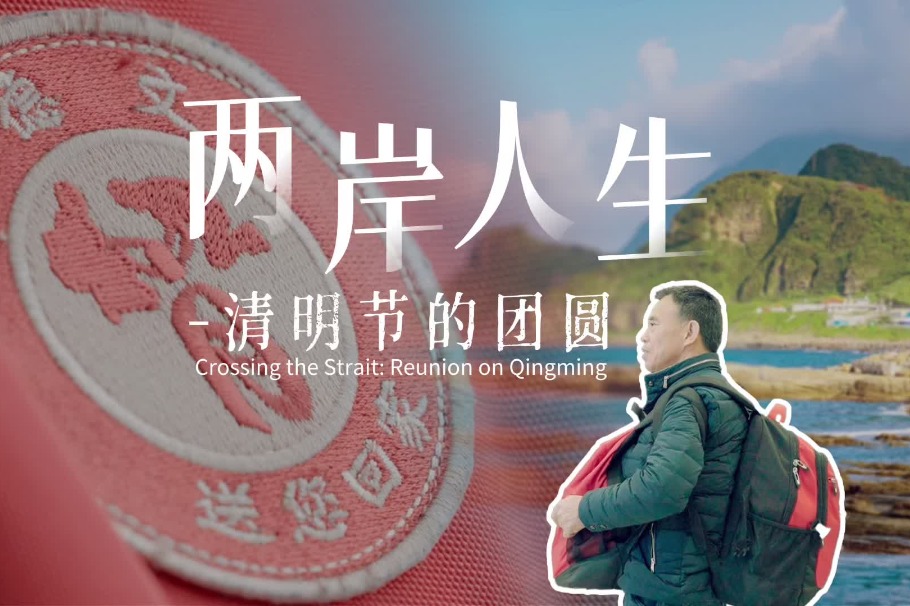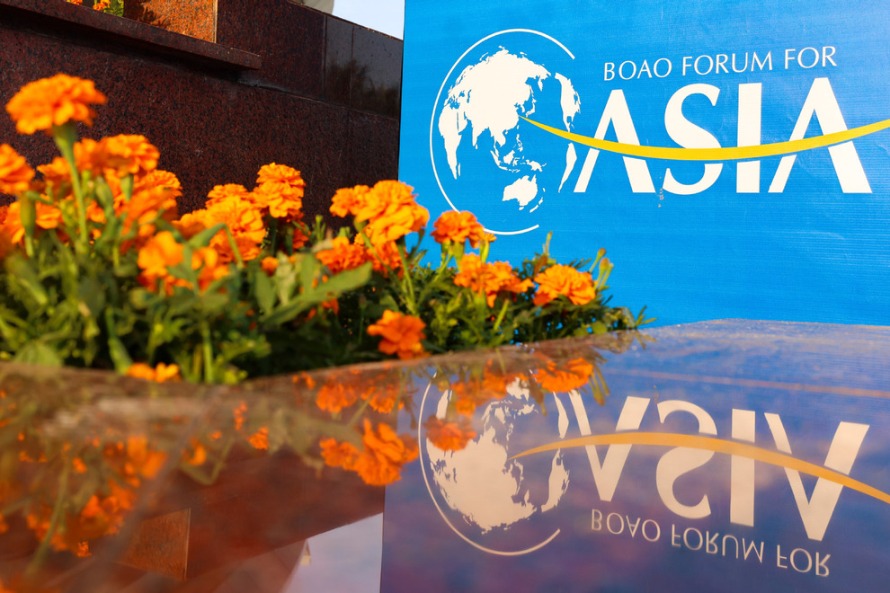DPP's hostile policy risks losing ECFA benefits
By Tang Yonghong | China Daily | Updated: 2024-01-13 08:38

The Customs Tariff Commission of the State Council recently expressed serious concerns over Taiwan's discriminatory measures against imports from the Chinese mainland. The island, in violation of the Economic Cooperation Framework Agreement, has withdrawn the tariff concessions on certain mainland products.
Signed by the two sides of the Taiwan Strait in 2010 and based on the 1992 Consensus that there is only one China and Taiwan is part of China, the ECFA has played a pivotal role in fostering economic cooperation between the mainland and Taiwan. The ECFA dividends Taiwan has enjoyed over the years show the mainland's commitment to benefit Taiwan, particularly in key fields such as petrochemicals, plastics, machinery, auto components, steel and textiles.
In the more than 13 years since the ECFA was implemented, Beijing has honored all its commitments, significantly reducing import tariffs on various Taiwan products. This has not only benefited Taiwan businesses and residents, but also played a key role in boosting the island's economic growth. In fact, the mainland has reduced tariffs worth $10 billion on Taiwan products over the years while Taiwan's total tariff cuts add up to one-tenth of that figure.
Despite the substantial gains from cross-Strait trade, Taiwan has built trade barriers against mainland products, hurting both Taiwan businesses and mainland exporters. These barriers not only hinder the economic development of the mainland and the island, but also affect the livelihoods and wellbeing of people on both sides.
The ruling Democratic Progressive Party on the island has refused to acknowledge the 1992 Consensus since coming to power in 2016, and pursued policies hostile to the mainland. This approach, coupled with the DPP's collaboration with external forces to seek "independence", has damaged core cross-Strait interests.
Taiwan's discriminatory policies include restricting the imports of thousands of mainland products and banning more than 2,500 items. Such actions violate the provisions of the ECFA which are aimed at gradually reducing or eliminating the trade barriers across the Strait.
The 1992 Consensus not only serves as the political foundation for cross-Strait economic cooperation, but also underpins the mainland's goodwill toward Taiwan. Yet the DPP has rejected the 1992 Consensus and taken increasingly hostile measures against mainland products, harming core cross-Strait interests.
The DPP's hostile policy toward Beijing has eroded the economic base of both the ECFA and Beijing's Taiwan-friendly initiatives. Hence, Beijing has ample reasons to terminate the ECFA and impose economic sanctions on Taiwan in order to prevent the separatist forces from harming cross-Strait interests.
But the mainland, instead of taking harsh measures, has chosen to suspend tariff concessions on only 12 categories of imports from Taiwan, which is a measured response aimed at minimizing the harm to Taiwan residents, in the hope that the DPP would change its approach toward the mainland.
However, if the DPP still refuses to acknowledge the 1992 Consensus, and continues to collaborate with foreign forces to undermine the nation's sovereignty and security, the mainland may be compelled to terminate the ECFA or take more severe countermeasures.
Should this happen, Taiwan's exports to the mainland would lose their competitiveness and the colossal mainland market. This could lead to further industrial relocation, economic downturn, wage cuts, and even rising unemployment in Taiwan.
It's imperative that the DPP recognize the intricate interplay between political and economic relations across the Strait. The peaceful development of cross-Strait relations and the mainland's goodwill gestures toward Taiwan, encapsulated in the ECFA and the Taiwan-friendly measures, hinge on the acceptance of the 1992 Consensus by the island's authorities. In essence, adherence to the 1992 Consensus ensures the continuation of the ECFA and the mainland's favorable treatment of Taiwan, which in turn would allow Taiwan to continue enjoying the dividends of peaceful cross-Strait relations.
Conversely, by continuing to reject the 1992 Consensus and engage in separatist activities, the pro-independence forces on the island will not only make Taiwan lose the benefits emanating from the ECFA, but also be responsible for the damage to the island's economy and the loss of Taiwan residents' livelihoods, as well as jeopardize Taiwan's security.
The author is a professor at the Taiwan Research Center, Xiamen University. The views don't necessarily reflect those of China Daily.
If you have a specific expertise, or would like to share your thought about our stories, then send us your writings at opinion@chinadaily.com.cn, and comment@chinadaily.com.cn.
























